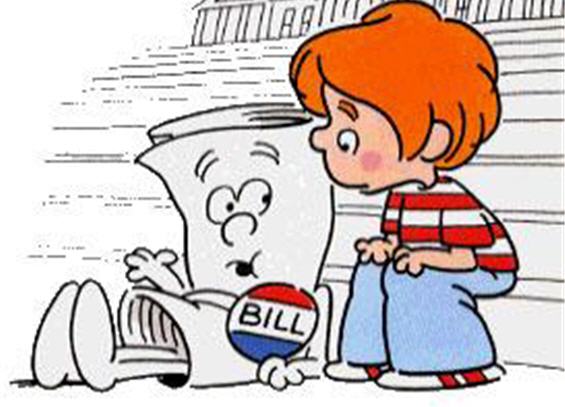Obama Wants Line-Item Veto
President Obama joins his recent predecessors in wanting a line-item veto and has plans to get around the fact that it’s blatantly unconstitutional.
As part of what the White House called a campaign to crack down on wasteful government spending, President Obama on Monday asked Congress to grant him new powers to slice lawmakers’ pet projects from congressionally approved spending bills.
Under the proposal, Obama and future presidents would have 45 days to comb legislation for pork-barrel projects they deem unnecessary and send a list of rescissions to Capitol Hill. Congress would then have 25 days to approve the entire list or reject it without changes.
The proposal is a variation on the line-item veto, which was approved by a Republican Congress in 1996 and used by then-president Bill Clinton to slice more than $2 billion from spending bills before being ruled unconstitutional in 1998. White House budget director Peter Orszag said the new proposal would pass legal muster because, unlike the line-item veto, which “gave the knife to the president,” Congress would retain ultimate control over the budget scalpel.
Uh . . . no. The Constitution provides that the Congress passes laws and the president then:
- Signs them into law
- Vetos them, in which case both Houses of Congress must pass it with 2/3 supermajorities or it doesn’t become law
- Fail to sign it within 10 days, in which case it automatically becomes law if Congress is in session or is automatically vetoed if not
Giving the president the power to unilaterally strike down portions of laws unless Congress takes additional steps would clearly require a Constitutional amendment. This would work, however, if the president were to submit a list of rescissions for Congress to pass into law. The bully pulpit could be used to shine a spotlight on particularly egregious instances of pork, so it wouldn’t be a completely toothless measure.
Regardless, however, this is mere political theater:
House Speaker Nancy Pelosi (D-Calif.) and Senate Majority Leader Harry M. Reid (D-Nev.) were noncommittal, with Pelosi saying in a statement that she looks “forward to reviewing” the proposal. A senior Democratic aide in the Senate called the plan’s chances of passage “bleak.”
Republicans, meanwhile, mocked the idea as “a day late and a trillion dollars short,” in the words of Rep. Tom Price (R-Ga.), chairman of the Republican Study Committee, who noted that the overall national debt is approaching $13 trillion. Meanwhile, Democratic leaders in both chambers plan to ask lawmakers this week to approve two spending bills that would charge about $200 billion more to the federal credit card. On Tuesday, Obama will travel to the Capitol to seek support from Senate Republicans for one of the measures, a $58.8 billion package to help finance the wars in Iraq and Afghanistan.
Some outside analysts were equally dismissive of Obama’s rescission proposal. “A lot of people want to believe our looming budgetary crisis is caused by bridges to nowhere” and other pork barrel projects, said Cato Institute vice president Gene Healy. “But it’s not true. That sort of thing is a rounding error” compared with defense spending and entitlement programs, he said.
Healy’s observation is key. People are under the impression that getting rid of blatant pork, “waste, fraud, and abuse,” foreign aid, and the like would solve our budget woes. Not hardly. Running a balanced budget would require some combination of massive cuts in popular spending programs and substantial tax increases.







Let’s put some numbers behind that, James. Total 2010 federal government spending is about $3.7 trillion. Something like two-thirds of that, roughly $2.5 trillion is Social Security, Medicare, the federal portion of Medicaid, and the interest on the debt. The 2010 deficit is about $1.6 trillion.
In other words if you completely eliminated defense spending and all other federal spending other than Social Security, Medicare, Medicaid, and interest on the debt you still wouldn’t balance the budget.
The only FY 2010 graph I could find is this one at Kaiser:
http://facts.kff.org/chart.aspx?ch=378
If 38% of the budget is deflationary, that would seem worth while watching over. If I add “other” at 8% I’m up to almost half of current spending. Maybe that’s what got John McCain concerned.
Social Security 20%, Medicare 13%, but really with a separate income stream, so to judge contribution to a single year’s deficit you’d need to model shortfall.
I can work with the cash-accounting view as well, but as a reason to not watch our pennies, I’m not sure this really works. Do financial advisors say “keep drinking those Lattes, as long as you are in debt, it just doesn’t matter”?
Oops, “other’ was 16%.
And “deflationary” was not the word I wanted at all. Weird. Must have been too fast spell-checking. “discretionary” is the right word.